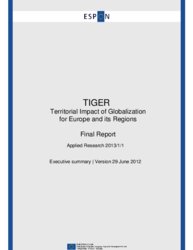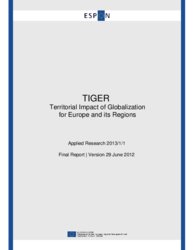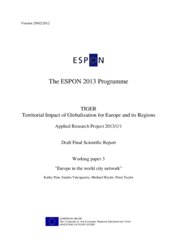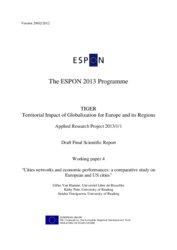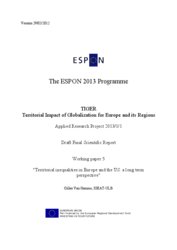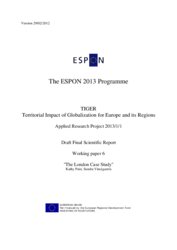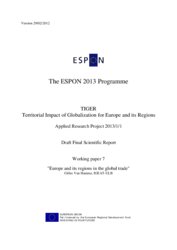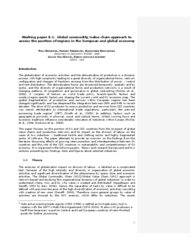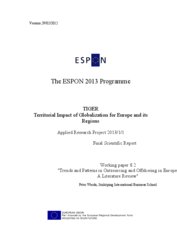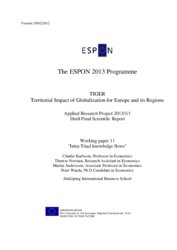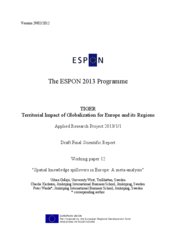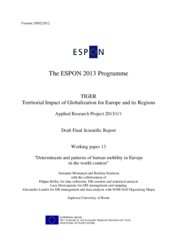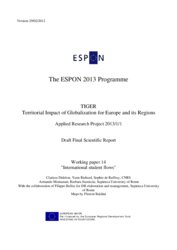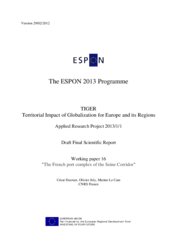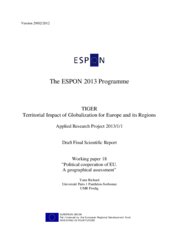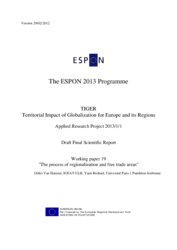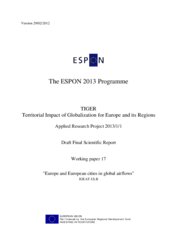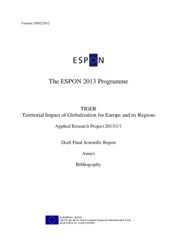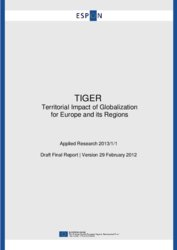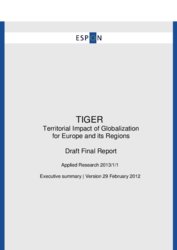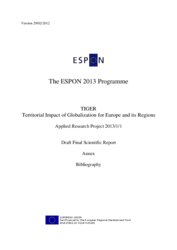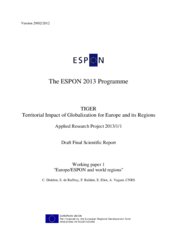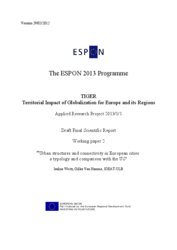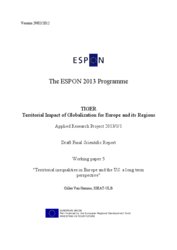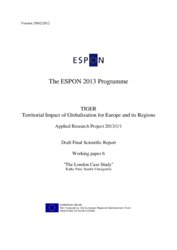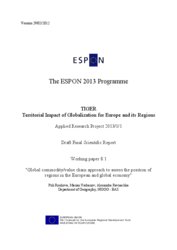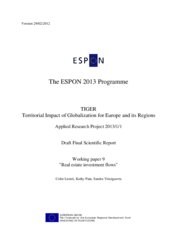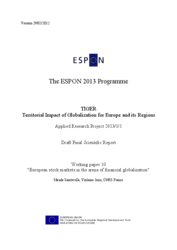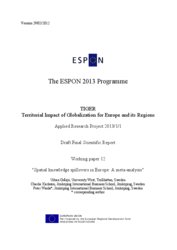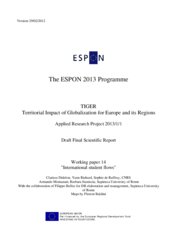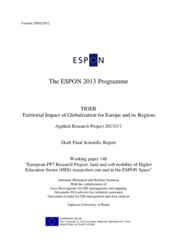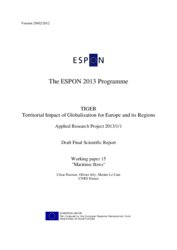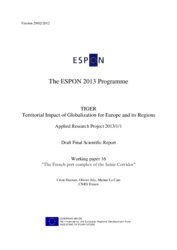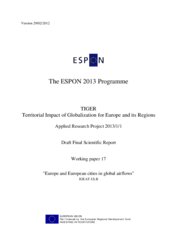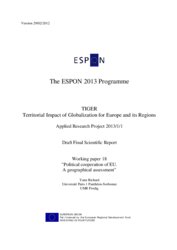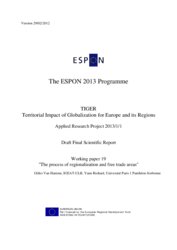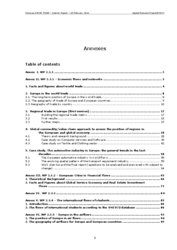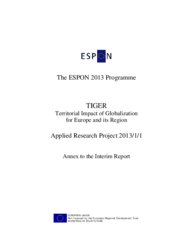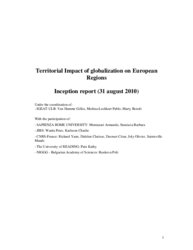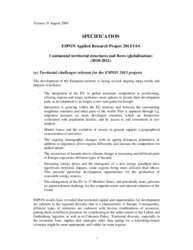TIGER - Territorial Impact of Globalization for Europe and its Regions
Theme
Continental territorial structures and flows (globalisation).
Main focus
Globalisation is accelerating with European competitiveness becoming more and more interwoven and dependent on the rest on the world. Understanding Europe in the world is a prerequisite for policy making and for promoting Europe in this international competition.
Integration, cooperation and smart exploitation of resources are key factors for improving the competitiveness of European regions in the globalised world scene. It is also important to better understand the territorial structures and patterns of economic activity at world level, as well as flows between continents and throughout European regions. Regions are under strong impact on many trends and developments related to globalisation and need support to decide on potential strategic investments that could increase their competitiveness in this globalized world.
This project is going to look at globalisation from a territorial perspective and to analyse its territorial aspects and its dynamics at different geographical scales. It shall also address the importance of territorial cooperation and flows linking EU territory. The main aim of the project is to look into the territorial dimension of the globalisation process and analyse its significance for an enlarged Europe. A good understanding of the position of Europe and its regions in the global context and in relation to other cooperation areas shall be obtained. This should be done considering the present context, past trends and analysing changes but also in a prospective way in order to be able to face future challenges and better exploit territorial potentials of the various European regions.
Please read more about the main research areas and main results envisaged on the next page.
Lead Partner
Free University of Brussels, Belgium
Detailed information on the contracted project team can be found under Transnational Project Groups.
Sounding Board
Roberta Benini, IT
Miroslawa Czerny, PL
Budget: € 999 801,00
Project’s lifetime: February 2010 – December 2012
Delivery of Reports
Inception Report: 31 August 2010
Interim Report: 28 February 2011
Annex to Inception Report: 29 July 2011
Draft Final Report: 28 February 2012
Final Report: 30 June 2012
Publishing
Reports will be published once they are approved by the ESPON Monitoring Committee
More information
Please contact the Project Expert at the ESPON Coordination Unit:
Sandra DI BIAGGIO, e-mail: sandra.di.biaggio@espon.eu
Main research areas
- Trends, dynamics and spatial pattern of globalisation in European territory.
- Territorial structures at world level, profiles and changes.
- Impact of globalisation on European territories and meaning in terms of cohesion policy.
- The position of Europe in the World.
- Flows and networks in the globalising world from a European perspective.
- Influence of globalization on regional growth, competitiveness and reducing disparities in Europe.
- Cooperation of regions and new forms of governance at a global scale in EU context.
- New forms of territorial organisation and integration responding to globalisation.
- Considerations about potential specific strategic and structural investments at European level to support the competitiveness and territorial cohesion of Europe and its regions.
Main results envisaged
- Identification of the territorial aspects of the globalisation process with most relevance for Europe and its regions.
- Provision of an operational concept of globalisation, encapsulating the European context.
- Overview of position and profile of Europe in the global urban structure.
- Better knowledge on the EU main territorial structures and its dynamics in the global perspective.
- Identification and overview of the main types of flows between Europe, its regions and the rest of the world.
- A number of case studies (minimum 5) with the objective of analysing more in depth the territorial potentials of Europe, its regions and cities in relation to the globalisation process and to Europe’s competitiveness at world level.
- Input to ESPON 2013 Database with data, indicators and maps describing spatial patterns and characteristics of the main territorial structures at world level, as well as on various flows linking Europe in globalization context. Typology of regions in Europe.
- Policy considerations for policy makers, which could be a basis for intervention to better exploit territorial opportunities for improving European competitiveness and cohesion.
